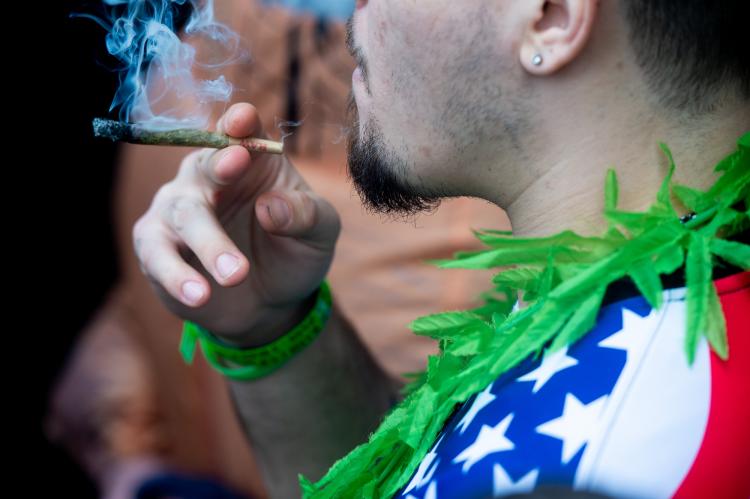N.J. lawmakers advance second bill to decriminalize weed
Lawmakers are moving ahead with the second bill proposed in recent weeks that would decriminalize certain levels of marijuana possession in New Jersey, amid mounting protests both in the state and nationwide against racial inequality.
Their introduction comes months ahead of a ballot question set for November’s 2020 presidential election, where voters will decide whether recreational marijuana should be legalized for adult-use.
The measures – Assembly Bills 1897 and 4269 – initially introduced Monday at the Assembly Community Development and Affairs Committee, were combined before passing by four votes with two abstentions.
One of the abstentions came from Assemblyman Ryan Peters, R-8th District, who said that he had not received a copy of the draft legislation and as such, would not vote on the proposal.
Together, the new bill calls for decriminalizing the possession of small amounts of cannabis and scaling back civil and criminal penalties for possessing large amounts. The new bill also expands and quickens how someone with cannabis-related offenses could get those records expunged.
According to the Assembly Democrats Office, the state shells out roughly $127 million each year on cannabis possession law enforcement.
In December, Gov. Phil Murphy signed a bill creating an expungement process for certain cannabis-related offenses, allowing those to be wiped from people’s records even though they are still criminal offenses warranting arrests. Decriminalization was initially proposed then as a stopgap measure, but it was pulled during the lame duck voting session in January.
The governor, Senate President Stephen Sweeney, D-3rd District, and Assembly Speaker Craig Coughlin, D-19th District, were initially hesitant to approve decriminalization, worried that it would embolden black market sales.
“It’s time for the change we seek,” one of the bill’s sponsors, Assemblywoman Angela McKnight, D-31st District, said in a Monday afternoon statement. “New Jersey residents are not happy with the status quo and we need to move in a direction of compassion for the communities that have long been targeted by current regulatory criteria.”
Compare and contrast
Under the Assembly bills, possession and distribution of up to 2 ounces of cannabis, or 5 grams of hashish, would be reduced to a civil penalty of $50, payable to the local government where the offense transpired. A measure introduced in the upper house earlier this month, Senate Bill 2535, calls for a $25 civil penalty.
Right now, a person charged with less than an ounce faces up to 18 months imprisonment and fines up to $10,000.
Under current law, possession of between 1 ounce and 5 pounds is punishable with imprisonment between three and five years or fines up to $25,000, or both. The Senate bill raises the threshold to one pound, and the Assembly bill does the same.
The Assembly legislation mirrors many features of S2535, and many passages and sections in both bills are identical word-for-word.
But possession of up to a pound of cannabis would, under S2535, no longer be an arrestable offense, replacing it with a written warning for first offenses and a $25 civil penalty or community service for any afterward.
The combined Assembly bills instead call for scaling back penalties for possession of that amount—lowering a first-time offense from 18 months to six months of imprisonment, and fines from $10,000 to $1,000. Any subsequent offenses would be met with the current level of punishment.
Under the combined Assembly bills, the state “would establish a legal presumption that the possession of such amount of marijuana … is the authorized possession of medical cannabis or a medical cannabis product.” If that presumption is proven false, then the person would be fined $50.
Any current, prior, or potential marijuana-related offenses, such as convictions or charges, could not be taken into account when determining whether a person is eligible for pretrial release, under the two proposals.
Both bills also call for a “virtual expungement” of marijuana and hashish offenses, so that immediately after its enactment, any “arrest, charge, conviction, adjudication of delinquency, and proceedings … would be deemed not to have occurred.” And a person need not submit a petition to the court to apply for that type of expungement.
And, they each require the state’s court system to develop information that it could provide for residents on how to navigate the expungement process. The court system would have to devise and roll out a public information campaign for residents eligible for this new type of expungement.
The bills would bar someone from being denied a job, mortgage, or public or private housing, based on whether they have a marijuana offense.
That has been a long-standing burden for New Jersey residents with cannabis-related criminal offenses on their record, according to the Assembly sponsor, Assemblyman Benjie Wimberly, D-35th District.
Any portion of a criminal record concerning someone’s “detection, apprehension, arrest, detention, trial or disposition” stemming from a cannabis offense would no longer be a public government record.
- Log in to post comments

